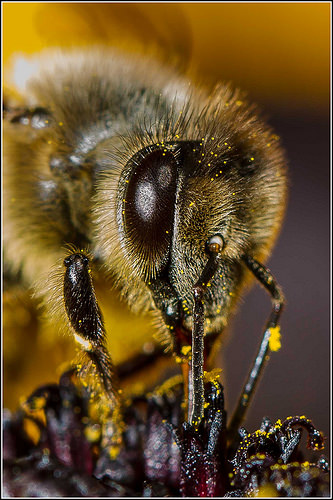
Top Pesticide Regulators Met with Industry to Discuss Benefits of Neonicotinoids
Feb. 12 — The Environmental Protection Agency's top pesticide regulators met privately last month with pesticide industry-funded researchers to hear them make the case for the value of neonicotinoid insecticides, according to documents made public Feb. 10.
The researchers, Paul Mitchell and Pete Nowak from the firm Ag Informatics, were responding to a recently issued EPA study that found treating soybean seeds with neonicotinoids provides farmers with no significant financial or agricultural benefits.
February 17, 2015 | Source: Bloomberg BNA | by David Schultz
Feb. 12 — The Environmental Protection Agency's top pesticide regulators met privately last month with pesticide industry-funded researchers to hear them make the case for the value of neonicotinoid insecticides, according to documents made public Feb. 10.
The researchers, Paul Mitchell and Pete Nowak from the firm Ag Informatics, were responding to a recently issued EPA study that found treating soybean seeds with neonicotinoids provides farmers with no significant financial or agricultural benefits.
At the Jan. 22 closed-door meeting at the EPA's Arlington, Va., offices, Mitchell and Nowak presented the findings of their own study, which found that banning neonicotinoids would impose $848 million a year in initial transition costs on the agriculture industry and lead to huge increases in the use of older, more dangerous and less effective insecticides.
Mitchell and Nowak found that neonicotinoids are applied to 56 percent of all corn, soybean, cotton, wheat and sorghum crops planted in the U.S. The vast majority of the time—98 percent, according to their research—the neonicotinoid insecticide was applied as a seed treatment prior to planting.
The researchers also conducted a telephone survey of 1,240 soy and corn farmers in the U.S. and Canada, which found that between 75 and 80 percent would continue to use neonicotinoid-treated seeds even if non-treated seeds were available.
Their study was funded by a coalition of four pesticide companies: Bayer CropScience, Syngenta, Valent and Mitsui Agrochemicals.
